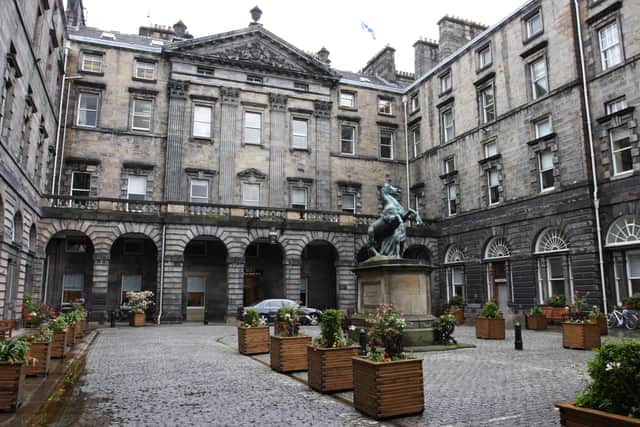Edinburgh residents to be asked which council services should be cut in face of £150 million deficit
and live on Freeview channel 276
Edinburgh residents will be asked which council services should be “reduced” or scrapped entirely in the face of increasingly strained budgets.
Engagement with the public on local authority spending is set to kick off next month and will also seek ideas for how the council could save cash. City leaders say the process will help to shape budget decisions over the next few years.
Advertisement
Hide AdAdvertisement
Hide AdEdinburgh council is facing a projected deficit of £150m in the next five years and “growing demand for services which exceeds the funding available to provide those services,” a report said. Through a series of surveys, focus groups and workshops – which will cost around £60k to administer – the authority hopes to capture “views and priorities of Edinburgh’s diverse residents”.


The first phase will be a short questionnaire. This will ask residents: "What is going on in your neighbourhood that the council should pay more attention to?" and "Where do you think the council has done well in the last year?"
Other proposed questions are "What ideas do you have for how the council could save money?" and "In order to save money, what service that you receive could the council reduce or stop providing?" The questionnaire will run online and in drop-in sessions in libraries and community centres over 16 weeks from April 2.
The report said: “As part of phase one, the council will communicate its overall budget position and strategic priorities to residents, setting out what the Council seeks to achieve for Edinburgh.
Advertisement
Hide AdAdvertisement
Hide Ad“Results from phase one will be reported to committee alongside more detailed proposals for phase two. Results will also be reported to Trade Unions. These results will show what priorities residents expressed, where we are seen as succeeding, public suggestions for change, and any problems resolved through normal systems. Results will be communicated internally to the Senior Leadership Team and Council Leadership Team to assist with the preparation of budget options.”
Edinburgh Tory group leader Iain Whyte said it was vital the public were made aware of “projected deficits for the next few years” when being asked for their views. A councillor since 1995, he said in the past “town hall meetings where people could put forward ideas” had proved the most effective when gauging opinions and ideas on how public funds should be spent.
He added: “Most of these things showed the public aren’t quite as left-wing as some of the councillors. They showed there was public support, for instance, for ending the no compulsory redundancy policy and ensuring we diverted staffing and resources to things that most mattered in people’s neighbourhoods.”
For phase two, launching in autumn this year, subject to councillor approval, a series of focus groups will be held “on subjects which were either raised by residents during phase one or are felt to be essential for discussion”. Participants will be paid £40.
Advertisement
Hide AdAdvertisement
Hide AdThe third phase, in spring next year, will see “a series of workshops held with council colleagues, Trade Union representatives, and representatives of partner organisations looking at problems and solutions identified from phase two”.
The report added: “Results from phase three will be reported to committee as part of a final engagement summary report along with any relevant action planning, next steps, and public communications.”
Comment Guidelines
National World encourages reader discussion on our stories. User feedback, insights and back-and-forth exchanges add a rich layer of context to reporting. Please review our Community Guidelines before commenting.